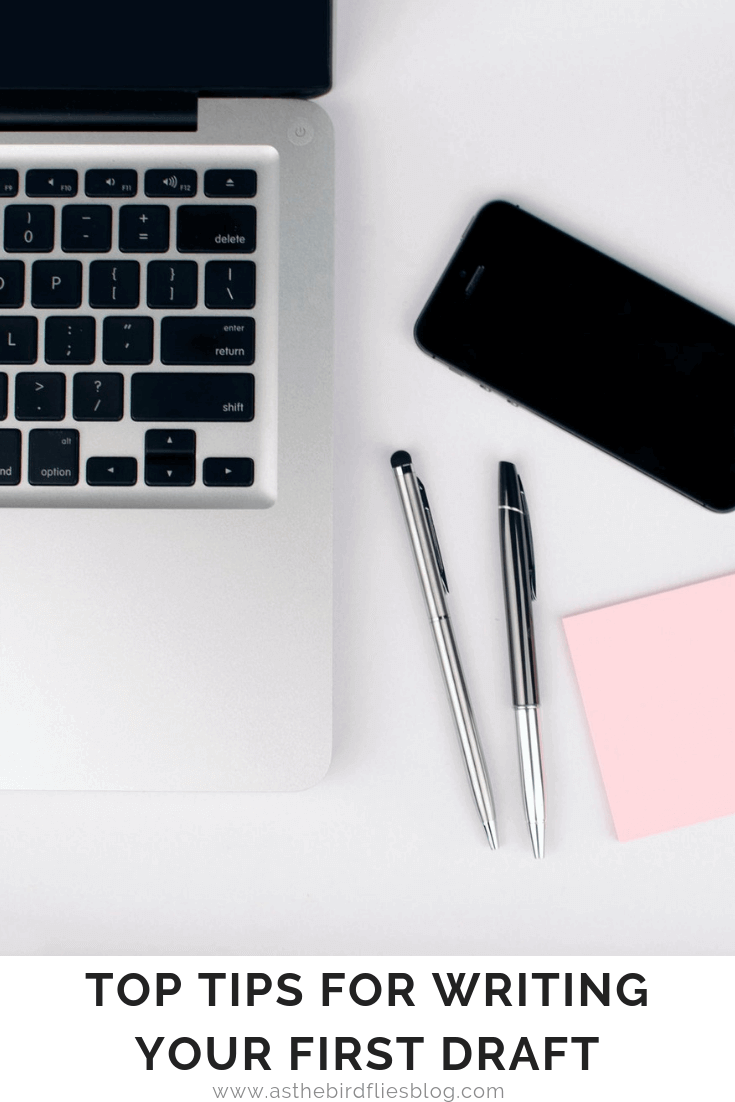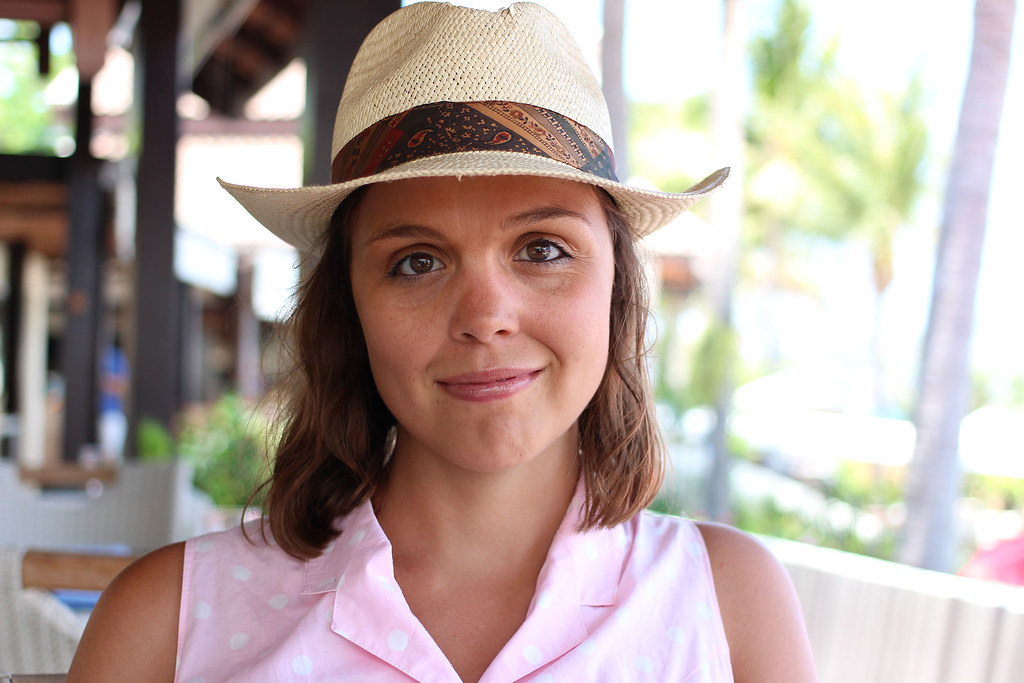On Writing: Tips for Writing a First Draft
How to Write a First Draft
As with all stages of writing, how any writer gets their first draft written will look very different to another author''s process. I guess that should be my first tip for writing a first draft, don't compare yourself to anyone else, and don't expect your experience or approach to writing a first draft to be the same as anyone else's. My other tips for writing a first draft vary from general advice about what attitude you should adopt, to specific practical suggestions to help guide you on your way to saving time - or rather optimising the time you spend writing a first draft, because as important as a first draft is, it's going to be so far from the final version of your work.
However, it's also true that there is lots of joy and fun to be experienced writing a first draft, whether you do it as part of a challenge like NaNoWriMo (and here are all the NaNo tips you need if that's the case) or if you're just sitting down and doing it because you finally feel it's time to give your idea a home. I hope that these tips for writing your first draft will help you get the most pleasure out of the experience too, because writing a first draft shouldn't be all struggle and stress, it should also be the exciting, brilliant beginning of a journey.
The Best Tips for Writing a First Draft
1. You learn by doing, so don't delay!
Although some writers may try to have you believe it otherwise (and maybe they have a book or an e-course to sell, ahem!), it's my experience and my honest belief that there are no shortcuts when it comes to writing. You learn by doing. And that goes for all stages of the writing process, no matter how many there are, from having an idea for a book to having a book that is finished (and maybe published). Even writers like Lee Child who claim to only ever write one draft of a book and that is both the first and final draft of their novels, they have learned over the years (or over the course of penning 25 Jack Reacher books in Mr Child's case) how to do that. That is why I think the very best thing you can do to learn how to write a first draft, is to simply sit down and start writing it. Or at the very least try.
I am a prolific first drafter. Before I wrote and published my short stories, all I ever wrote were first drafts. First drafts of (so many!) unfinished novels, screenplays, TV scripts, and yes, the first drafts of short stories that will never the see the light of day. For a long time all of these abandoned projects felt like a waste of time. So many hours spent writing, and yet nothing to show for them? Well, that's not strictly true anymore because I now have three published collections of short fiction, and one novella. These books are what I have to show for everything those early (and terrible and often unfinished) first drafts of mine taught me. It was in writing those incomplete stories that I learned lessons that helped me finally finish a book, starting yet again but just as importantly with finishing the first draft.
I'm not saying that there isn't a place for planning before you start writing your book. As my current How to Write a Book series of posts is documenting, I have learned that I personally do need to do some planning and preparation before I get into writing the first draft, but I learned this by writing first draft after first draft, and then editing them and seeing where I was coming unstuck, where I needed to have done more prep, and what problems (and plot holes) I could easily have avoided by doing a little planning in advance. You could of course ignore this advice and start planning your novel and I'm sure there is a lot to be gained from doing this, however, it is also my experience that there can be no end of different planning and preparation exercises or steps that you can take before you get to writing your first draft so be careful that your preparation isn't a delaying tactic. I really do strongly believe that it is only by doing you will learn just how much other stuff you need to do whether that's planning, research, character development, day dreaming, reading or studying of the craft.
I'm also not saying is that the first draft you sit down to write today (I hope!) is going to be one of many inevitably abandoned first drafts like my first were. Quite the opposite, you should start that first draft with all the determination and intent of finishing it, because ultimately that's what I was lacking when I started those early first drafts. But my point is either way you have to start, you have to do it, you have to write that first draft in order to learn lessons that no blog post, no book on writing, or no other writer can teach you. You are going to be your best teacher, and you learn by doing. You learn by writing.
2. Own your own process (through trial and error!)
It follows from this that what you learn about writing as you work on your first draft, and the ways you prefer to write, are entirely personal to you, and that's exactly how it should be. If you want to write your first draft by hand (and many of the greats do!) then do it, see how it works out, do the words flow quicker, or is the cramp in your hand too much? Then, if you like, try setting yourself daily or weekly word count goals. Does this help keep you on track? Or is the feeling when you miss a goal too crappy to make it motivational? Maybe you want to write in Word? Or Evernote? Or Scrivener?
There are many ways to write a first draft, and you have to figure out what does and doesn't work for you. This was certainly the main benefit of going from the Queen of Unfinished First Drafts to the proud author of a finished and ready for re-writes manuscript. I learned about my natural rhythms and energy for writing (i.e. mornings and evenings are best, the middle of the day or early afternoon is not!). I learned that I like having a word count goal and/or accountability in the form of publicly sharing or doing a daily writing challenge like NaNoWriMo. I learned that I need to write on a computer, preferably with a large screen and no Internet connection, but failing that a laptop is just fine. I learned that I like using Scrivener software but if time is an issue (and it often is as I'm a mother and freelancer) I can just as easily write on Evernote where I can even add words to a first draft on my phone (and it will sync across devices). I discovered that I actually can write better to music with singing and lyrics than I can instrumentals or background music tracks, and now I have a writing music playlist that will nearly always move me to have a good writing session
Be prepared to try new things, or stop old habits, depending on what works for you. I will say that you need to give each change or new thing at least a few weeks to see if it works for you, but of course some writing processes will immediately ring alarm bells as they don't work for you (for me I'm talking about any writing soundtrack with running water - hello toilet every five minutes! Or writing with a pen and paper - ouch my wrist!).
3. Don't look back in anger
Now you hopefully know that writing a first draft is a process you have to create and own for yourself, I can start dishing out some general, practical advice. The first is possibly the most important; don't look back. I know I said don't look back in anger but really this also should just read "don't look back... AT ALL" because ultimately that is not how first drafts are written. If you stop and start what you're writing and edit words already written, I could be pedantic and say you're not really writing a first draft, you're actually writing a second or third draft.
Of course, you can move around your manuscript time-wise, jumping from scenes at the end to scenes in the beginning to a chapter in the middle, because a first draft doesn't have to be written chronologically (and this is something you have to figure out for yourself), but ultimately the words you write should all be fresh and unadulterated and always moving you forward toward having a draft that is somewhat complete.
4. Set yourself goals but not deadlines
Goals, deadlines and word counts work differently for different people. For some they are essential to motivating and holding oneself accountable. For others they can exert too much pressure and subsequent stress when not met, which then discourages them from continuing. Personally I like to work with a mixture of both. I like challenges like NaNoWriMo (or setting myself a similar word count goal over a pre-determined period of time) because they use goals but they have an end date. Of course, all projects ultimately have an end date, we hope that we won't be working on projects indefinitely or forever - even poor old George R.R. Martin doesn't want to be doing that - but it can take many months to get a first draft finished and that's a long time to keep up a certain writing pace, especially if you are new to writing first drafts. NaNoWriMo lasts 30 days and that is about the right amount of time - I believe based on personal experience - that you can sustain a decent writing output of between 1000 - 2000 words a day, maybe more if you have the time and you write quickly. If your first draft is still not finished after that, take a break, and then maybe do the same challenge again. At that rate, unless you're writing the next War & Peace, you should have the bulk of your first draft written considering that most novels are normally between 50,000 and 80,000 words.
Importantly, make this a goal. Not a deadline. Don't have any other plans or expectations or stages for your book in place that you expect to start once this goal's date passes, because if you don't meet it and you are then delaying or having to make changes to a schedule you will not feel good about it. It sounds simple and perhaps a little sensitive but you can't underestimate how disheartening it can be to "fall behind" with a project, and when it comes to writing your first draft, you will need all the positive energy you can muster to keep you going on those harder days.
5. A little prep goes a long way
Soooo, you know when I said get on with writing your first draft and worry about everything else later, well, I didn't mean EVERYTHING ELSE! No, I'm not trying to be contrary or backtrack on what I said earlier, but I want you to know that you can help yourself get on and write that first draft just by doing a little preparation, and I mean little!
Have you actually written down what your idea for a novel is? Have you taken time to think about the opening scene? Have you thought about how it will end? Have you written down a few notes about your characters, maybe plotted a family tree or found some pictures of people that may look like the main characters? If you had to write a blurb for your book, what would that be? Or what about doing an elevator pitch for your story? Or maybe just write down in one sentence what you hope to achieve by writing this book? How do you want your readers to feel? Which three adjectives would you like a reader to use to describe your book?
If you answer just one of these questions, you will be doing some important first draft planning and preparation, and be sure to keep it close to you as you then get on and write your first draft because it will help you more than you know.

6. Write notes to future you
So, now it's time to write. Seriously, get on and write! What are you waiting for (the answer is nothing by the way!). So you're writing your first draft and it's all going well - yay! However at some point - maybe halfway in, maybe in the second chapter, possibly in the first paragraph - you will get stuck. It could be a plot hole. It could be a character's name or age or other detail that you've forgotten. It could be a whole new sub-plot that you decided to throw in there yesterday and now it's completely thrown you. Whatever it is, don't panic. Don't think that this thing that you can't seem to write through or around right now is going to mean you have to stop, start over and eventually delete everything you've already written, especially as you're trying really hard to only look and write forwards as per #3.
So, if you don't panic, if you don't delete, if you don't go back and edit, what do you do to get out of this mess? I will tell you.
You write yourself a little note. You write whatever it is that is the problem and you add on at the end "To fix later". Then you think about where you can pick up the story again without too much damage being done - maybe also add a note about what you are jumping over and any blanks that need to be filled in - and you write on.
Yes, this will mean that you have gaping holes in your manuscript and of course you'll have to deal with the problem eventually but now is not the time to worry about that. Now is the time to keep writing as much as you can and let future you worry about it.
Is the problem you've uncovered so much of a problem that you really can't write on? Well, that does happen and that does suck. But again don't panic. Think about how you're really feeling about the problem and the first draft, and take a bit of time to think over this, a few days at least. If your feelings don't change, or you become more convinced that walking away is what you have to do, then do just that. But before you do, spend a little time first acknowledging and maybe even highlighting what didn't work for you so that you can avoid this problem in the future and actively plan to write a first draft that will circumnavigate this problem.
There is no shame in coming across problems or getting to a stage where you don't enjoy or value what you're working on. If anything there are great lessons to be learned as you can spend a bit of time looking at what went wrong, what didn't feel good, and most importantly, how you would do it better next time.
7. Don't get stuck on things that don't matter
If it's not clear from the point above, getting stuck is part and parcel of writing a first draft. To some extent you can't control that or avoid it completely. It's my experience that it's an annoyingly normal and frustratingly necessary part of the creative process. However, what is in your control is how you react to it.
What you need to remember about your first draft is that whatever it looks like once finished is likely to be utterly different to what it will look like when re-written (multiple times), edited, copy-edited, proofread and maybe even published. Don't be precious about your first draft. This goes for spelling, grammar, typos and to a certain extent even the prose, characters and dialogue, because all these things can and should be worked out and improved upon in subsequent drafts so try to think about these things not mattering.
What does matter at this stage of writing are the bones of your work. Your first draft is responsible for building the bones of something. These bones are the most necessary part of a story, but they don't have to be pretty. In fact, they shouldn't be pretty. Your first draft is never going to be seen by anyone else but you so don't dwell on it. Just get it written, as ugly as it needs to be.
8. Find your flow (or a happy writing place!)
I am hesitant to talk about "flow" because it risks alienating new writers, or writers that have written a lot but never experienced "flow", but I want to mention it in order to illustrate how writing a first draft can be a very special experience. Flow refers to a state of mind or activity in which you can get so involved in something that time passes quickly, your brain is completely focused, and you experience pleasurable feelings be it joy, calm, excitement, satisfaction or even some kind of emotion. Flow happens when you focus on one thing - often a creative activity (but not always) - and you do it for long enough that it absorbs enough of your attention and effort that other distractions and concerns fade away. Let me be clear, flow doesn't always happen. Flow is not something you can get on demand, but it is something that can appear quickly and suddenly, almost from nowhere. And flow is lovely.
When you experience flow, or even if you just get so into your first draft that the words come easy, that will give you some sense of reward or at least satisfaction or maybe even belonging when you write. I'm definitely not saying that you have to experience flow in order to be a success, or doing it right, but I do think it's fair to say that you should be finding some enjoyment in writing your first draft. It may take a few days, weeks, or longer but do what you can to find your happy writing place, and I mean literally as well as figuratively. If writing your first draft constantly feels like a struggle and you find yourself doubting every single word you write (as oppose to every other word - this is very normal!) then maybe something isn't working for you in your current arrangement so try writing at a different time of day, try writing in a different place, try a different writing playlist or backing track. It's never going to be fun all the time, but there should be, must be some enjoyment in writing your first draft, otherwise what's the point?
9. Write like nobody's watching
Speaking of finding a bit of fun in writing your first draft.... The following should help.
Sometimes, when I go for a run I like to try run like nobody's watching. This means swinging my arms around me, singing out loud to the music I'm listening to, and swearing loudly when I find it hard. This is exactly the kind of liberating, carefree approach you need to adopt when writing a first draft. Writing a first draft is a special, creative, magical, chaotic, slightly maddening process and you should embrace ALL of the feelings it gives you. Want to face-palm yourself when you misspell a word so it looks nothing like it should? Go ahead! Want to laugh when one of your characters tells a joke? Do it! Feel the sudden need to cry when it comes to killing a darling or two? This is completely normal and healthy. It's also a good sign that you're putting some emotion into your writing. In short, throw yourself completely into your first draft and don't question what it makes you feel or think, because unless you are writing with another author, nobody is watching or judging you as you write this first draft. Yes, okay, you may be literally doing the physical act of writing in a public place or in a room with your family or friends, but unless they have very beady eyes or are sat on your lap, they don't know what you're writing, and so what if you let out a few expletives or tears or giggles? At best, it will pique their curiosity or at worse will get you a few odd looks. Then you should do what I do when running, just keep on going, keep on puffing, keep on singing, and keep on fully enjoying this wonderful thing you are doing!
10. Done is better than perfect
Perfection is the enemy of first draft writing; it slows it down; it makes it a million times harder than it has to be; it is not actually really writing a first draft - it's picking apart a first draft. Perfection is not welcome when you write a first draft. Done is always the goal.
In fact, I've learned that the perfect first draft is an ugly, messy, incomplete, lacking, error-ridden, hopeless, needy thing. But it is a done thing, in that you have enough of a piece of work to go on to the next step...
11. The real magic will happen later
The next step will look different to all writers. Personally I like to re-write my first drafts a handful of times before I then work with an editor or maybe possibly send it out to a group of beta readers for feedback. But regardless of what happens next after I have written a first draft, there is always a noticeable shift in my approach to the manuscript. When I write a first draft I am focused on just getting as much as I can down on paper, in approximately the right order, or at least a possible order. The goal of a first draft is to just exist, so that's all I'm thinking about when I write a story out for the first time. The next time I look at that first draft, my goal is different; now I need to make it whole. I need to make it good. I need to make it shine. Now, I add the magic.
If you feel a spark of magic while writing your first draft, brilliant, throw it in, maybe even whisper "Abracadabra!" as you do, but if you find you're unable to find a magic wand while writing your first draft, don't worry. This is not the time for magic. It's the time for just being.
12. Don't underestimate how amazing what you're doing is!
There are several statistics flying around about how many people want to write a book in their lifetime. I think I've seen 80% being quoted most frequently. Whatever the statistic is, I can bet you that there are more people in the world who want to write a book, than there are people who actually sit down and do it. Writing a first draft is a brave thing to do. It's scary embarking on a creative project and writing a story no matter how many words it may be is no easy task. Regardless of what you're writing, you will feel that what you write is coming from part of you so it's always a very personal process too. And because writing a first draft - no matter how huge and fantastic an achievement that is - is still only really the beginning of whatever journey your manuscript is going to turn into, there are plenty of reasons for starting this process to feel like too big, too intimidating and maybe even too impossible a journey to go on. However, you have decided to do it anyway. You are committing to doing something so few actually do. You are doing something amazing and regardless of what happens next with your first draft, you should feel very, very proud.
If you'd like more writing advice, check out the following posts:
Three Secret Ingredients for a Productive Writing Habit
Why Writers Need Writing Affirmations
Tips for Doing a Daily Writing Challenge
How to Build a Regular Writing Habit
Why Running Makes Me a Better Writer
How to Start a Writing Habit That Sticks (In Just Ten Minutes)
The Best Twitter Hashtags for Writers
The Best Apps for Productive and Distraction-Free Writing
Ten Things You Need to Remember During NaNoWriMo
Lessons Learned from Losing NaNoWriMo
How to (Successfully!) Do NaNoWriMo as a Parent
What is a NaNo Rebel? (And How to Be One!)
Get Ahead at NaNoWriMo in Eight Hours (Or Less) Without Cheating
Are You Ready to Do NaNoWriMo: NaNoWriMo Checklist
And don't forget my How to Write a Book Series of posts: Part One - The Story Idea / Part Two - Story Development / Part Three - Writing a Book Outline / Part Four - Character Development & Character Development Questions
And if you'd like to save or share this post, here's an image for you to pin:


Frances M. Thompson
Find Frankie on Facebook, Twitter, Instagram, Pinterest, and Google+.

 On Writing: My Writing & Publishing Plans for 2023
On Writing: My Writing & Publishing Plans for 2023_x300.jpg?v=1) On Writing: The Year I Decided to Write for My Life
On Writing: The Year I Decided to Write for My Life On Writing: Best (& Easiest!) Creative Habits All Writers Should Try
On Writing: Best (& Easiest!) Creative Habits All Writers Should Try On Writing: How to Earn Money by Writing Stories
On Writing: How to Earn Money by Writing Stories On Writing: What Are The Different Types of Editors?
On Writing: What Are The Different Types of Editors? About the Blog & Frankie
About the Blog & Frankie Welcome to My Amsterdam Travel Blog!
Welcome to My Amsterdam Travel Blog! Welcome to My Luxury Family Travel Blog!
Welcome to My Luxury Family Travel Blog! Welcome to My Writing Blog!
Welcome to My Writing Blog! Lover Mother Other: Poems - Out Now!
Lover Mother Other: Poems - Out Now! I Write Stories That Move You
I Write Stories That Move You Order WriteNOW Cards - Affirmation Cards for Writers
Order WriteNOW Cards - Affirmation Cards for Writers Work With Me
Work With Me